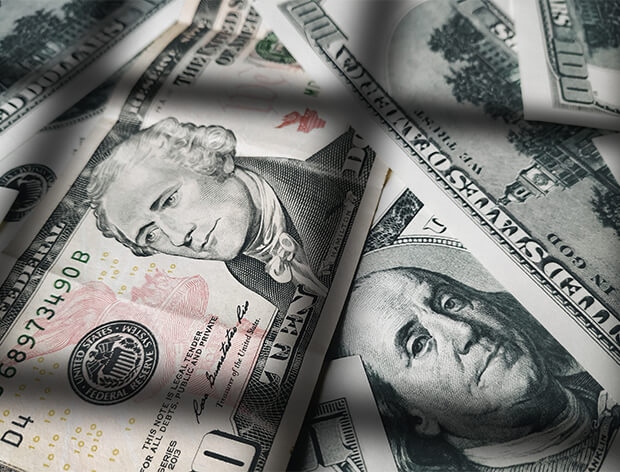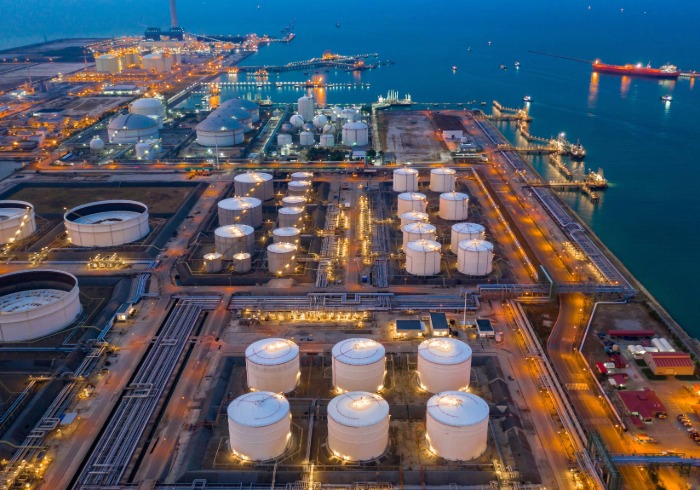When US President-elect Donald Trump returns to the White House in January, the Republican leader is unlikely to row back the current administration’s Russia sanctions programme, experts believe.
Speaking in September, prior to last week’s convincing electoral win over Democratic rival Kamala Harris, Trump vowed to pursue a shift in trade strategy and touted tariffs as a more effective foreign policy tool.
“Sanctions have to be used very judiciously, and we have a lot of things more powerful actually than sanctions,” Trump said at an event held by the Economic Club of New York that month.
Since Moscow’s full-scale invasion of Ukraine, the US has imposed sanctions on well over 2,000 Russian individuals, vessels and entities including major banks Sberbank and VTB, in a bid to squeeze Moscow’s energy revenues and stifle its ability to procure military and dual-use goods.
In turn, trade invoicing in Chinese yuan has grown significantly and Russia is reportedly eyeing the use of a barter trade system, as well as cryptocurrencies, as a means to bypass the US dollar system.
Trump suggested the waning use of the US dollar for trade is a “problem” arising from a sanctions-led approach and said he would use such measures as “little as possible”, whereas tariffs can better protect the greenback’s primacy.
“I was a user of sanctions, but I would put them on and take them off as quickly as possible, because ultimately it kills your dollar and kills everything the dollar represents, and we have to continue to have that to be the world currency,” he said.
“If we lost the dollar as a world currency, that would be the equivalent of losing a war. You are losing Iran, you are losing Russia, China is out there trying to get their currency to be the dominant currency… I stopped wars with tariffs.”
The President-elect has pledged to enact blanket tariffs of between 10% and 20% on all imports to the US, and 60% on imports from China.
But despite Trump’s claims, there are questions as to whether he will be able to scale back existing Russian sanctions quickly.
“While there has been significant discussion on the impact of a second Trump presidency on international sanctions, in the short term I do not consider that the US position will change dramatically, says David Savage, a partner at law firm HFW.
“Trump’s ‘America First’ policy means that much focus will be on shoring up the US economy. Sanctions is likely to play second fiddle.”
It is unlikely the US will repeal its Russian sanctions unless Moscow agrees to start negotiations over a truce, he tells GTR.
“Trump will not do a deal if the other side is not offering anything of value,” Savage says.
Speaking at the GTR US event in New York last week, David Tannenbaum, a partner for maritime intelligence at Pole Star Global, said Washington’s sanctions on Russia could prove “stickier” than expected.
“It’s widely reported that Trump and some of the far right are a bit hostile to the Ukraine war, but the US economy is fairly insulated from the Russian economy,” he told attendees.
“It was near the beginning of the war as well, other than like aircraft leasing and certain things. I don’t think it would be politically popular if they removed all the sanctions.”
During his election bid, Trump vowed to end the Ukraine war “within a day” though is yet to outline a specific plan. There are fears in Kyiv that the US President will promote a swift peace agreement that would see Ukraine concede much – if not all – of the land occupied by Russian forces.
Iran is another geopolitical foe that could become a target for Trump, yet capacity to expand the existing sanctions regime is already strained, experts say.
During his first term, Trump took a hawkish stance towards Tehran, pulling out of the Joint Comprehensive Plan of Action and imposing primary and secondary sanctions on the country. In early November, the US government said it foiled an Iran-backed assassination attempt on the President-elect.
“As to Iran, there’s little the US can really do given the near blanket US embargo already in place,” Savage tells GTR.
“However, if the Iranian government continues to supply Russia with drones or enables aggression against Israel, I do think there’s a chance the EU or UK may increase sanctions. This would not necessarily create any friction with the Trump administration.”
Tannenbaum echoed such views at the GTR US event, but said there is scope for Trump to blacklist entities that facilitate Iranian exports.
“We can absolutely say that there will be more sanctions on Iran… [but] it’s more just designations,” he said. “I would not be surprised if in February or March, early on in the term, we saw about 200 or 300 tankers that were engaged in the trade of Iran put on the sanctions list.”
“We are advising our clients that this might be a time, if there are red flags, that we might want to de-risk these tankers, because we don’t want to get caught with cargo on the water,” he told attendees.
Tannenbaum suggested Trump may also look to introduce additional export controls on sensitive goods to China, even if his trade strategy vis-à-vis China is expected to focus primarily on tariffs.
“On the China side, I think we could probably expect significantly more export controls tightening on that end, they may tie it in with Russia and Iran onto the common high priority list of goods,” he said. “Semiconductors, navigational systems, things like that.”







